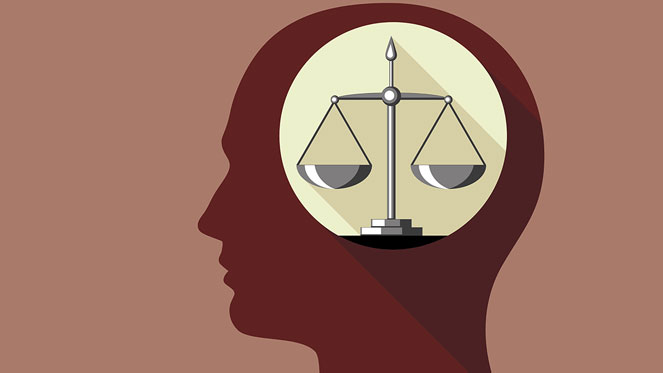Picking Sides: The Evolutionary Origins of Reasoning
By Emily Stimmel

With the 2016 election cycle in full swing, heated political arguments are constantly brewing. From the nightly news to Facebook posts, we’re inundated with messages designed to persuade us to choose a side. But this is nothing new. In fact, according to new research from Carnegie Mellon University’s Andy Norman, the urge to convince others has evolutionary roots.
In a paper recently published in Biology & Philosophy, Norman argues that reasoning is biologically unique to humans. Though other animals draw inferences, only people are able to produce and respond to what he describes as “reason-giving performances.” He says this trait allowed our ancestors to build and maintain shared outlooks — a necessity for collective societies in which groups hunted for food together, for example.
“The human capacity for reason probably evolved to align our mental states both with circumstances in the world and with the mental states of others,” said Norman, adjunct faculty in the Dietrich College of Humanities and Social Sciences’ Philosophy Department.
 Norman’s intentional alignment model (IAM) expands on the argumentative theory of reason (ATR) developed by philosophers Hugo Mercier and Dan Sperber as an explanation for cognitive biases and groupthink. In “Why We Reason: Intention-Alignment and the Genesis of Human Rationality,” Norman proposes that reason evolved because it helped — and continues to help — promote mutually advantageous collaboration.
Norman’s intentional alignment model (IAM) expands on the argumentative theory of reason (ATR) developed by philosophers Hugo Mercier and Dan Sperber as an explanation for cognitive biases and groupthink. In “Why We Reason: Intention-Alignment and the Genesis of Human Rationality,” Norman proposes that reason evolved because it helped — and continues to help — promote mutually advantageous collaboration.
“Natural selection appears to have ‘designed’ our reasoning propensities to serve dual ends. They function to help us understand the world, but they are also ‘for’ forging shared outlooks — for building and maintaining points of view that are functionally aligned,” he said.
Norman believes that understanding the functional role of reasoning has implications for a wide variety of disciplines, including biology, cognitive psychology, anthropology, philosophy, politics and ethics. And on a more fundamental level, it offers insight into the ways that humans think and behave.
He added, “We use reason to advance various proximal ends, but in the main, we do it to overwrite the beliefs and desires of others: to get others to think like us.”